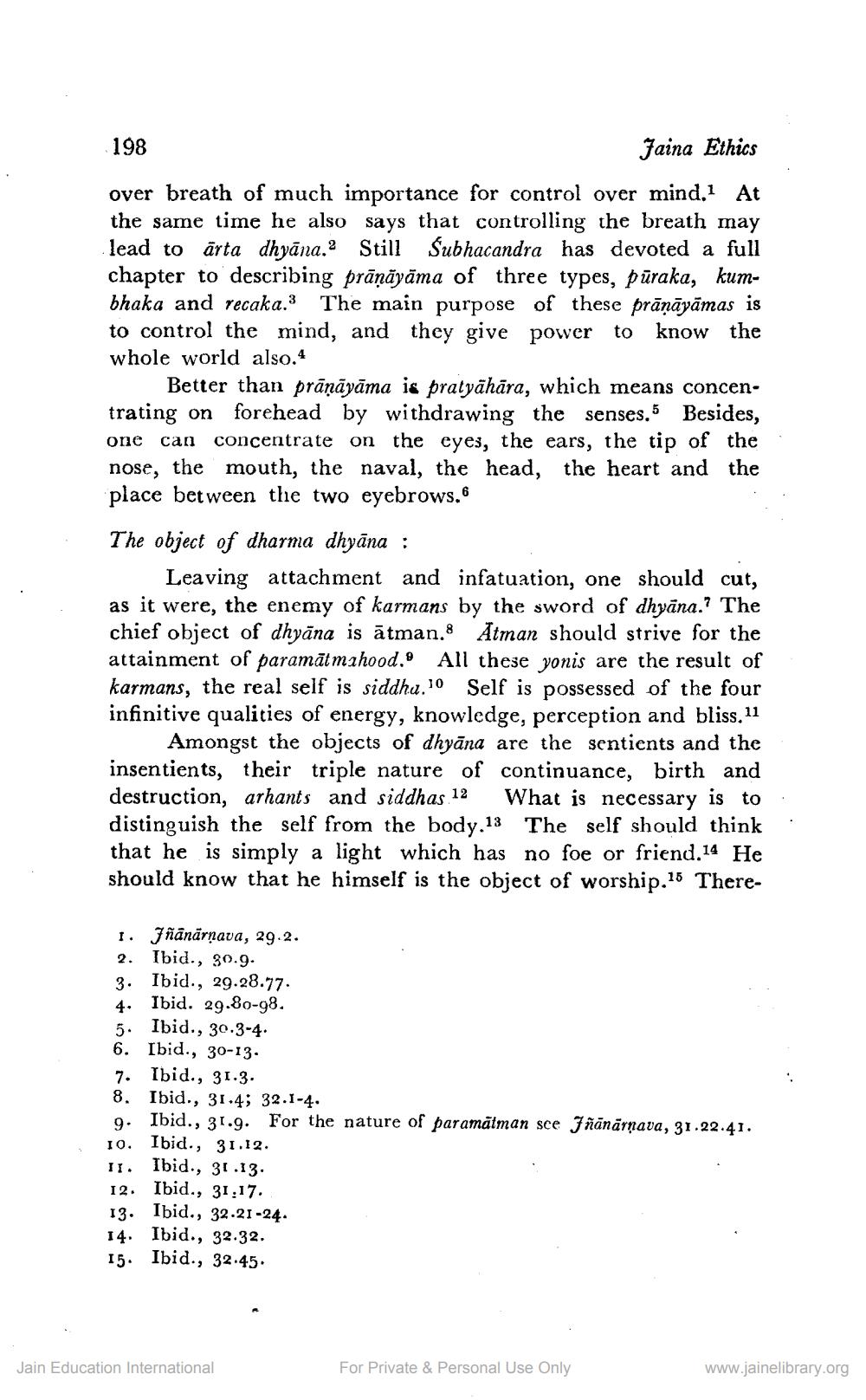________________
198
Jaina Ethics over breath of much importance for control over mind.1 At the same time he also says that controlling the breath may lead to ārta dhyāna.2 Still Subhacandra has devoted a full chapter to describing prāņāyāma of three types, pūraka, kumbhaka and recaka. The main purpose of these prānāyāmas is to control the mind, and they give power to know the whole world also.4
Better than prāņāyāma is pratyāhāra, which means concentrating on forehead by withdrawing the senses. Besides, one can concentrate on the eyes, the ears, the tip of the nose, the mouth, the naval, the head, the heart and the place between the two eyebrows. The object of dharma dhyāna :
Leaving attachment and infatuation, one should cut, as it were, the enemy of karmans by the sword of dhyāna.? The chief object of dhyāna is ātman.8 Atman should strive for the attainment of paramātmahood. All these yonis are the result of karmans, the real self is siddha. "O Self is possessed of the four infinitive qualities of energy, knowledge, perception and bliss. 11
Amongst the objects of dhyāna are the sentients and the insentients, their triple nature of continuance, birth and destruction, arhants and siddhas 12 What is necessary is to distinguish the self from the body.13 The self should think that he is simply a light which has no foe or friend.14 He should know that he himself is the object of worship.16 There
1. Jñānārnava, 29.2. 2. Ibid., 30.9.
Ibid., 29.28.77.
Ibid. 29.80-98. 5. Ibid., 30.3-4. 6. Ibid., 30-13 7. Ibid., 31.3. 8. Ibid., 31.4; 32.1-4. 9. Ibid., 31.9. For the nature of paramätman sce jñānärnava, 31.22.41. 10. Ibid., 31.12. II. Ibid., 31.13. 12. Ibid., 31.17. 13. Ibid., 32.21-24. 14. Ibid., 32.32. 15. Ibid., 32.45.
Jain Education International
For Private & Personal Use Only
www.jainelibrary.org




